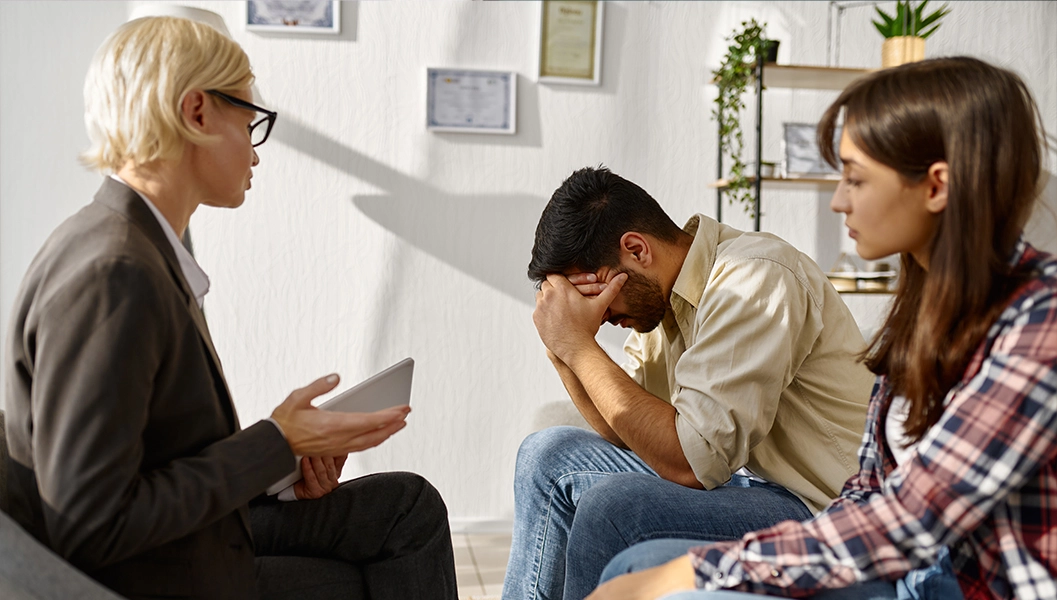What Causes Depression in Teens? Insight for Parents & Caregivers

When did teen life become so complicated? A lot of parents wonder why their teens are acting intensely. Even the smallest debates turn into chaos for teens. When all that daily stress builds up, it’s not just “teen angst.” We’re talking about teen depression. If you want to know what causes depression in teens, you can look for the red flags, indulge in necessary conversations, and take action before things go downhill.
Depression in teens is not just something they can ‘snap out of’, but the road to recovery is possible, yet bumpy.
At Saalvio, you don’t have to figure it out all alone. We make the impossible possible. But before we understand why teens get depressed, it is important to know how common it is.
How Common is Depression in Teens?
You might be surprised by the numbers, as the National Institute of Mental Health discovered that about 16.9% of teens aged 12 to 17 suffered at least one major depressive episode in 2023.
This also signifies that 1 in 6 teens may be suffering from depression at the moment, including your child or those around you. These figures are only of those diagnosed, and many might be suffering silently.
How Many Teens Suffer From Depression and Mental Health Challenges?
According to recent data from the World Health Organization, 1 in 7 teens globally is affected by mental health problems, with depression being the most common issue. In the U.S. alone, more than 2.7 million teenagers experience depression every year.
Besides depression, the figures for anxiety disorders, self-esteem concerns, and emotional burnout among teens are also higher. They are alarming and highlight the dire need for mental health support and intervention strategies for this cohort.
Help is present and help is near. Your teen needs the appropriate support and a platform to walk towards light.
Why Do Teens Get Depressed?
Depression in teens is a blend of emotional, biological and environmental factors. Some common factors are:
Biological Changes and Brain Development
Teens bring about significant hormonal shifts and changes in brain development, which can impact emotional stability and how teens manage stress or mood swings. It’s a challenging period for anyone, but for those with a family history of depression or mental health issues, the risks are even higher.
Academic Load
Academic pressure can take a major toll on a teen’s mental health due to competitive exams, parents’ expectations and fear of failure.
Relationships and Family Issues
Conflicts at home, strained relationships or loss of a loved one- all can contribute to a lasting emotional impact.
Peer Pressure and Bullying
Physical, verbal or online bullying is a strong reason for developing depression in teens.
Social Media Impact
The internet is a dynamic landscape, undeniably valuable for fostering connections, but it comes with significant challenges, especially for younger users. Many teens experience negative effects from certain online behaviours, such as constant comparison, exposure to cyberbullying, or disrupted sleep due to excessive device use.
How Does Mental Health Affect Teens? The Daily Grind
Depression disrupts nearly every aspect of a teen’s life and is more than just feeling down.
- Academic performance often takes a hit; motivation drops, focus slips, and grades can decline.
- Sleep patterns and eating habits get erratic.
- Meals might be skipped or, on the flip side, binge eating.
- Relationships become strained as arguments with family increase, or there’s noticeable withdrawal from friends.
- Self-esteem suffers, leading to intense self-criticism, risky behaviours, and in severe cases, thoughts of self-harm or suicide.
That’s why early, compassionate care matters so that small changes don’t cascade into bigger issues.
How Does Social Media Affect Teens’ Mental Health?
Social media has become a double-edged sword for today’s teens.
- On one hand, there’s constant pressure to keep up appearances, which can affect self-esteem.
- Late-night scrolling is yet another big problem that messes with sleep schedules.
- Exposure to cyberbullying and negative content can trigger anxiety and depression.
However, social media does offer opportunities for teens to connect with support systems, explore their interests, and even carve out their own identities.
Digital mental health platforms like Saalvio offer one-of-a-kind mental health support through their ThriveAI chatbot and licensed therapists for teen therapy.
How Many Teens Suffer from Depression? Signs to Look For
Changes and signs that last for more than two weeks:
- Melancholy, agitation or crying.
- Anhedonia- loss of pleasure for once-enjoyed activities.
- Poor appetite or sleep.
- Poor academic record and skipping school
- Feelings of despair or suicidal thoughts
Reach out to a therapist as soon as possible, or access a mental health platform like Saalvio from the comfort of your home.
Mental Health Activities for Teens- Evidence-based Practical Hacks
Try these mental health activities for teens to reduce stress and support healing:
- Grounding and mindfulness exercise: A few deep breaths can do wonders and help you refocus.
- Journaling: Jotting down thoughts and reflecting on your day can help you sort things out.
- Physical activity: Yoga, aerobics or a simple walk in the park can boost mood.
- Creative outlets: Arts and crafts, reading, or drama can help express yourself.
- Healthy sleep routine: Quality sleep is important for better daily functioning.
- Digital hygiene: Limiting late-night scrolling and setting downtime controls on screen can help set social media boundaries.
You can access activities and worksheets from a curated list at Positive Psychology teen resources, which are clinically reviewed and legit.
Why Online Therapy Can Help Teens?
Now that you know how many teens struggle with mental health, you might want to access online therapy and self-help tools. Here’s why:
- Access to licensed therapists knowledgeable about teens’ development, privacy, and flexible scheduling.
- Safe, private online sessions that respect confidentiality and keep up security.
Saalvio connects families with mental health professionals who specialize in teen mental health through their online therapy for teens. Where licensed professionals provide personalized care for your child’s needs.
How Parents and Caregivers Can Help?
- Active listening. Be receptive to your child’s emotions.
- Validate feelings. “I know what you are going through is hard” goes a long way.
- Set a routine. Meals, sleep and movement routines reduce stress.
- Avoid stigmatizing or labelling.
- Seek help early. Contact a therapist as soon as you sense changes in your teen’s behaviour.
If you are looking for guided support, Saalvio helps you book a consultation and access many self-help tools via the Saalvio app.
Final Thoughts
Teen depression is painful yet treatable, but with early detection, strong support and accessible help, most teens recover. You don’t have to do this alone, as compassionate care is available. If you or a loved one is struggling, book a consultation with Saalvio today or explore our teen mental health resources.
We are always one step ahead to help your teen feel heard, attended to, and valued.
“Asking for help isn’t a weakness, it’s the first step to strength.”
Connect with a licensed therapist at Saalvio today, or download our app to access emotional check-ins, a mood tracker, or self-help tools.
FAQs
1. Does teen depression go away?
Teen depression doesn’t go away on its own unless it is treated. It can get better with the right professional help.
2. How to motivate a teen with depression?
Create a supportive environment and network around your teen. Help them set up a healthy routine and celebrate their efforts.
3. What are the top three causes of depression?
Genetics, stressors in life and substance abuse are the top three causes of depression.
4. How long can depression last?
Depression can last for varying lengths, and there is no one answer to how long it can last. However, episodes can last for weeks, months or even years.

